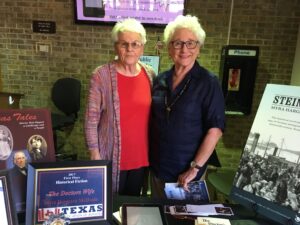Sarah Ridge survived a lifetime of tragedy before she arrived in Texas. Born in 1814 in the Cherokee Nation near present Rome, Georgia, she enjoyed a privileged life as the daughter of Major Ridge, a Cherokee leader, friend of Sam Houston, and plantation owner with black and Native American slaves. Sarah attended mission schools and a girls’ seminary in Winston-Salem North Carolina—an excellent education for a woman of her time.
Sarah’s father and her brother John were among the Cherokee leaders who signed a treaty in 1835 with the United States that promised to compensate the Cherokees for their rich farmland in Georgia in exchange for land in present Oklahoma and Arkansas. Major Ridge and other Cherokee leaders believed the continued encroachment of white settlers and the failure of the state of Georgia and the federal government to protect the Cherokee’s land made it wise for the Cherokees to accept the U.S. offer of financial arrangements for their peaceful removal to Indian Territory.
Soon after signing the treaty Ridge and his family were among the first group of Cherokees to head west. Another group of about 16,000 refused to leave and continued a legal battle to retain their land. Finally, in 1838 President Martin Van Buren ordered the U.S. Army to round up the Cherokees, place them in temporary stockades, and march them to Indian Territory. The 800-mile journey became known as “The Trail of Tears,” as approximately 4,000 Cherokees died from abuse, starvation, and lack of proper clothing in the frigid winter.
Anger and a sense of betrayal, led a group of Cherokees to assassinate Major Ridge, his son John, and Sarah’s cousin Elias Boudinot.
Sarah married George Washington Paschal, an attorney who represented the Cherokees before the U.S. Supreme court as they fought to retain their land. Finally, he helped move the Cherokees west and eventually served on the Arkansas Supreme Court.
Sarah bore six children before the family moved to Galveston in 1848. During the 1850 yellow fever outbreak Sarah used her knowledge of Cherokee herbs and medicinal remedies to relieve the suffering of many victims, and turned their home into a hospital.
The Paschals divorced later that year, and Sarah retained their home and a dozen slaves. Sarah married Charles Session Pix in 1856 in the home, ironically, of Mirabeau B. Lamar, the former President of the Republic of Texas known for his anti-Indian policies. Sarah sold her Galveston home and the Pixes bought and operated with six slaves a successful 520-acre cattle ranch north of Galveston Bay. During the Civil War, while Charles Pix served in the Confederacy, Sarah ran the ranch. After the war the operation suffered financial decline.
Following a celebrated trial the Pixes were divorced in 1880. Until her death in 1891, Sarah remained on the ranch with her widowed daughter and two grandsons. Her heirs still own the land.
Click this site http://tinyurl.com/7n4bv4z to view Sarah’s gravestone and the Texas Historical Marker for Sarah Ridge Paschal Pix.

Another great post Myra! She sounds like an interesting lady well ahead of her time!
Thanks, Christine. I appreciate your follow.
I love learning these tidbits of history.
And, I love sharing the tales with you. I’m grateful for your follow.
I have friends whose ancestors were moved to the Cherokee lands in Oklahoma. A sad tragedy to hear them tell of it. I’m so glad you gave us a woman’s story. I can’t imagine what she felt with all these changes lambasting her. Thanks.
There were plenty of tragedies to go around. Such sad times. And, such cruelty.